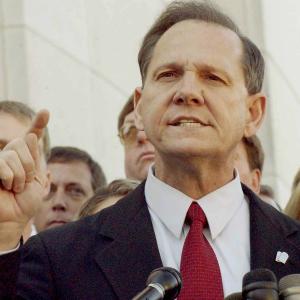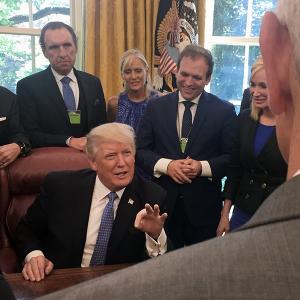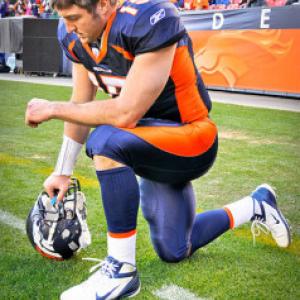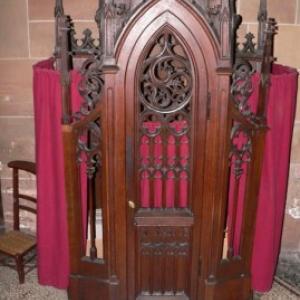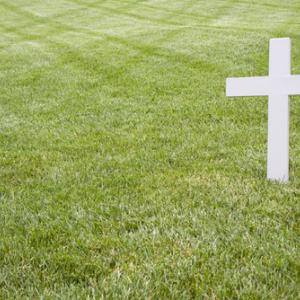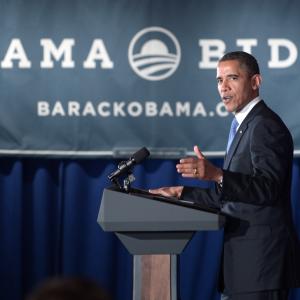Mark Silk graduated from Harvard College in 1972 and earned his Ph.D. in medieval history from Harvard University in 1982. After teaching at Harvard in the Department of History and Literature for three years, he became editor of the Boston Review.
In 1987 he joined the staff of the Atlanta Journal-Constitution, where he worked variously as a reporter, editorial writer and columnist.
In 1996 he became the founding director of the Leonard E. Greenberg Center for the Study of Religion in Public Life at Trinity College and in 1998 founding editor of Religion in the News, a magazine published by the Center that examines how the news media handle religious subject matter. In 2005, he was named director of the Trinity College Program on Public Values, comprising both the Greenberg Center and a new Institute for the Study of Secularism in Society and Culture directed by Barry Kosmin. In 2007, he became Professor of Religion in Public Life at the College.
Professor Silk is the author of Spiritual Politics: Religion and America Since World War II and Unsecular Media: Making News of Religion in America. He is co-editor of Religion by Region, an eight-volume series on religion and public life in the United States, and co-author of The American Establishment, Making Capitalism Work, and One Nation Divisible: How Regional Religious Differences Shape American Politics. He inaugurated "Spiritual Politics" in 2007.
Posts By This Author
Roy Moore and the Wages of Hypocrisy
If our supposedly secular culture leaps at revelations of hypocrisy, that’s because the concept is deeply embedded in the Abrahamic tradition. The early Hebrew prophets like Amos and Isaiah were all about denouncing demonstrations of piety and religious observance as worth nothing in the absence of righteous behavior.
False Prophets in the White House
In their greed these teachers will exploit you with fake news. Their condemnation has long been hanging over them, and their destruction has long been sleeping. — 2 Peter 2:3
On Wednesday, when President Trump shut down his business advisory committees just ahead of his business advisers’ resigning en masse in the wake of Charlottesville, one of his evangelical advisers, Johnnie Moore, delivered a statement on ABC News that concluded the following.
The End of the South’s Religion of the Lost Cause
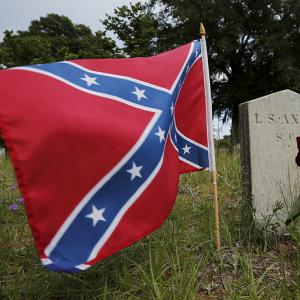
A Confederate battle flag flies at the grave of L.S. Axson, a soldier in the Confederate States Army in the U.S. Civil War, in Magnolia Cemetery in Charleston, S.C., on June 22, 2015. Photo courtesy of REUTERS/Brian Snyder / RNS
The Confederate battle flag will not fly much longer on the grounds of the South Carolina state Capitol, where it has flown since it was dislodged from the Capitol itself 15 years ago.
The state’s political establishment wants it gone, and doubtless it soon will be. What is to be hoped is that its removal signals the end of the mythical republic for which it stands.
In the years after the Civil War, the battle flag became the emblem of the Religion of the Lost Cause, which white Southerners embraced not only to legitimate and ennoble their disastrous struggle to maintain their right to own other people, but also to create the myth of an antebellum golden age of genteel manners, Christian piety, and happy slaves.
The LGBT Gap, By Religion
We all know that when it comes to the acceptance of LGBT folks, religions differ. But what the religions communicate, and how the people in the pews actually feel, are not the same.
In a word, the rank and file tend to be more accepting than the leadership. What’s striking is how much this LGBT Gap varies from religion to religion, and we can get some idea of the variance from Pew’s new survey of LGBT Americans.
As the measure of institutional messaging, we will use the percentages of LGBT people who say a given religion is unfriendly to them. These range from 84, 83, 79, and 73 percent for Islam, Mormonism, Catholicism, and Evangelicalism to 47 and 44 percent for Judaism and Mainline Protestantism. Then there is the proportion of members of each religion who believe that “homosexuality should be discouraged by society.” That’s 45, 65, 20, and 59 percent for the first four groups; 15 and 26 percent for the last two.
Welcome to New England, Tim
Now that you’re joining the Patriots, I’d like to offer you a few pointers on your new regional home. I realize that, to someone from the deep South, this may seem like just another part of Yankeedom, but New England is really a different place than New York. And given what happened in the Big Apple last year, I’m sure that’s good news, and the less said about it the better.
Anyway, New England is a great place to get a graduate degree, and you could not find a better institution than the U. of Foxboro to do advanced work in the liberal art of playing quarterback, under the tutelage of Prof. Brady. A dissertation on passing might be a good idea.
Aside from football, New England has a lot of variety of the human experience: steady habits in Connecticut, socialists in Vermont, cranky individualists in New Hampshire, a Tea Party governor in Maine, a Republican-turned-Independent-turned Democratic governor in Rhode Island, an African-American governor in Massachusetts. But wherever you go in this fair territory, same-sex couples can get married. That’s how we roll.
Privacy Isn’t What It Used to Be
On Slate, Emily Bazelon laments her colleagues’ lack of outrage at the revelations of the National Security Agency’s vacuuming up of data on what all of us are doing. In the New York Times, Ross Douthat explains it in terms of an internet motto: “abandon all privacy, ye who enter here.”
Privacy is soooo 20th century, no?
Yes. We now live in a world where we are constantly making choices that trade our privacy for convenience, from Easy Pass to global positioning to, of course, all the on-line services and commerce that we indulge in. No wonder the collective yawn at news that the federal government is doing what we assume Google is doing, in the (presumed) interest of public safety.
Polls on 'Religious Influence' Say More About The Media Than Religion
For over half a century, Gallup has been asking Americans whether they think the influence of religion is increasing or decreasing in the U.S., posing the intriguing question of what the results actually signify.
For starters, it’s worth bearing in mind that Western civilization is grounded in the belief that once upon a time, God was in his heaven and people went to church regularly. So at any given time, more Americans are likely to think the influence of religion is in decline than the other way around.
That said, what accounts for the rather striking ups and downs in the chart? In its latest release, Gallup emphasizes that these do not reflect changes in personal religiosity — and I’m inclined to agree, up to a point. Here’s the story I’d tell about the people’s perception of religion’s influence.
Romney Learns How to Talk to Evangelicals
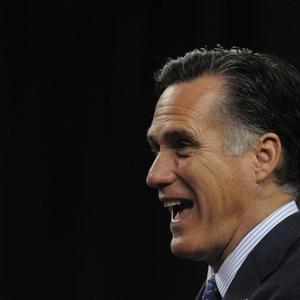
Mitt Romney speaking in Detroit, Feb. 2012. Photo via Wylio http://bit.ly/KqqDbi
It's no wonder that Mitt Romney won plaudits from evangelical bigwigs for his commencement speech at Liberty University on Saturday. It showed he's learned how to talk to them--or at least, learned to listen to the people who know how he's supposed to talk to them.
When he was running for president last time, Romney told the bigs that he was pretty much like them in considering Jesus his Lord and Savior. But if there's anything evangelicals don't like, it's Mormons claiming to be Christians like them. Then he gave a speech declaring that, like a presidential candidate half a century earlier, he did not "define my candidacy by my religion. A person should not be elected because of his faith nor should he be rejected because of his faith." But evangelicals (these days) don't much believe in Kennedyesque separation of faith and public office.
Obama Campaign Taps Young Adviser, Michael Wear, for Faith Outreach
President Obama's re-election campaign has tapped a 23-year-old executive assistant in the White House faith-based office to head up its outreach to religious communities.
Michael R. Wear, who has worked in the White House for the past three and half years, will move to Chicago to become the campaign's Faith Vote director next week, White House officials confirmed on Monday (May 14).
"It has been an honor working with Michael Wear to create positive faith-based and nonprofit partnerships to serve people in need," said Joshua DuBois, executive director of the Office of Faith-Based and Neighborhood Partnerships. Wear was DuBois' executive assistant.
The Postmillennial President

Over easy. Image via http://bit.ly/xaNg0h.
At this morning's National Prayer Breakfast, President Obama made clear just how pure a postmillennialist Midwestern mainline Protestant he is.
He spoke of how we as individuals acting in community "help bring His kingdom to Earth." And he emphasized the connection between his piety and his public efforts to to make that kingdom a reality.
